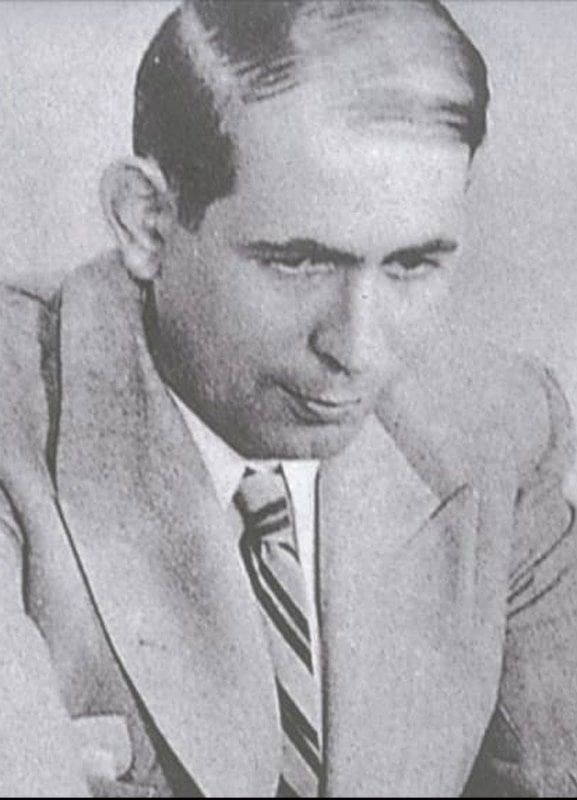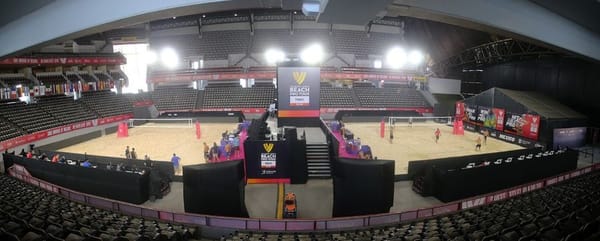Tomás Hernández Franco: A Poet and Short Story Writer from Tamboril
Tomás Hernández Franco was a Dominican poet, short story writer, essayist, journalist, and diplomat. He was born in Tamboril, Santiago de los Caballeros, on April 29, 1904. He worked as editor of the vegan newspaper "El Progreso" and in "La Información" of Santiago.

Tomás Hernández Franco was born into a wealthy family in Tamboril (formerly Peña), Santiago province, on April 29, 1904, and died in the city of Santo Domingo on September 1, 1952.
Poet, essayist, short story writer, diplomat, orator, journalist, and diplomat. Tomás Hernández Franco studied law in France but did not finish his degree. He was editor of the newspaper El Progreso in La Vega and shared the direction of the newspaper La Información with the late President Joaquín Balaguer, from where he developed an intense press campaign against the government of President Horacio Vásquez, becoming a supporter of the later Dominican dictator Rafael Leónidas Trujillo Molina, who rewarded him by appointing him to important diplomatic positions, which allowed him to participate in cultural missions in several European and Latin American countries.
Tomás Hernández Franco directed the Cuadernos Dominicanos de Cultura, together with Héctor Incháustegui Cabral, Rafael Díaz Niese, Emilio Rodríguez Demorizi and Pedro René Contín Aybar. He cultivated the so-called black poetry together with the national poet of Cuba, Nicolás Guillén, Luis Palés Matos, from Puerto Rico, and the Dominican Manuel del Cabral. Along with the notable poets Manuel del Cabral, Héctor Incháustegui Cabral and Pedro Mir, he was part of the generation of the Independents of the 1940s.
His legacy is composed of important titles such as Rezos bohemios, Capitulario, De amor, inquietud y cansancio, La poesía en República Dominicana, El hombre que había perdido su eje, La más bella revolución de América, La fuerza espiritual de un pequeño país, Canciones del litoral alegre, Apuntes sobre poesía popular y poesía negra en las Antillas, Yelidá (his masterpiece), Cibao, El asalto de los generales, Poemas de mi otro yo, Obras literarias completas (Studies, notes and compilation by poet and editor José Enrique García). There are many articles about author Tomás Hernández Franco and his main work that have been published in magazines and newspapers of national circulation.
Tomas Hernandez Franco and his work Yelida
It was in El Salvador, while he held a diplomatic post, where on December 18, 1942 that Tomás Hernández Franco published Yelidá in Ediciones Sargazo, in a private edition of 100 numbered copies made in the Talleres Gráficos Cisneros. There he also published the lecture Apuntes sobre poesía popular y poesía negra en las Antillas (Notes on popular poetry and black poetry in the Antilles).
The writer, columnist, and teacher Manuel Mora Serrano tell us that Tomas Hernandez Franco was a man of tall stature, stocky, and a human specimen of great physical beauty and strong character, who in Paris in the twenties came to flirt poetically with surrealism. In his early youth, he was a late modernist as one can see in many of his poems, which would not have mattered as much as knowing that his flamboyant or saman trees under which he poured Bermudez rum in abundance are still giving shadows.
In his initiation speech as a full member of the Dominican Academy of Language, of which he is now its director, essayist Bruno Rosario Candelier, has said that one of the keys to the success of "Yelidá" is the confluence, in its poetic structure, of the two opposing literary tendencies: realism and subjectivism. The poet Tomás Hernández Franco was aware of what he was doing, since he wanted to join the realist trend, dominant in Dominican poetry, to the imaginative one, the only way to achieve a poem of long creative breath.
Finally, the essayist and narrator José Alcántara Almánzar, believe that this poem does not vindicate the black poet because the white poet ends up imposing himself. His knowledge of voodoo and Scandinavian mythology completes the material with which Hernández Franco structures his poem, loading it with the mysterious connotations of two opposing cultures, and thus illustrating the perennial emotional conflict in which the peoples of America live in their fusion and intermingling of races. Hernández Franco is one of the fundamental poets of the Dominican 20th century.
A fragment of the poem Yelida by Tomas Hernandez Franco
Another after
With the soul of a spider for the male accomplice of the spasm
Yelidá by the very path of her womb
assassin of the wind lost in the teeth of the grotto
there it was vegetal and burning
in humid humidity of fungus and lichen
hot as everything hot
a thing of rotten leaf fermented in the penumbra of time and moon
made of filter and rare word
in the water of the puddle with its green and its larvae
and its half-born wing and its meteor's gait
Yelida stripped to yes and to no
by the ecstasy of white and frenzy of black
deep to the earth and high to the sky
in the secret of furrows and the mystic of flames.




